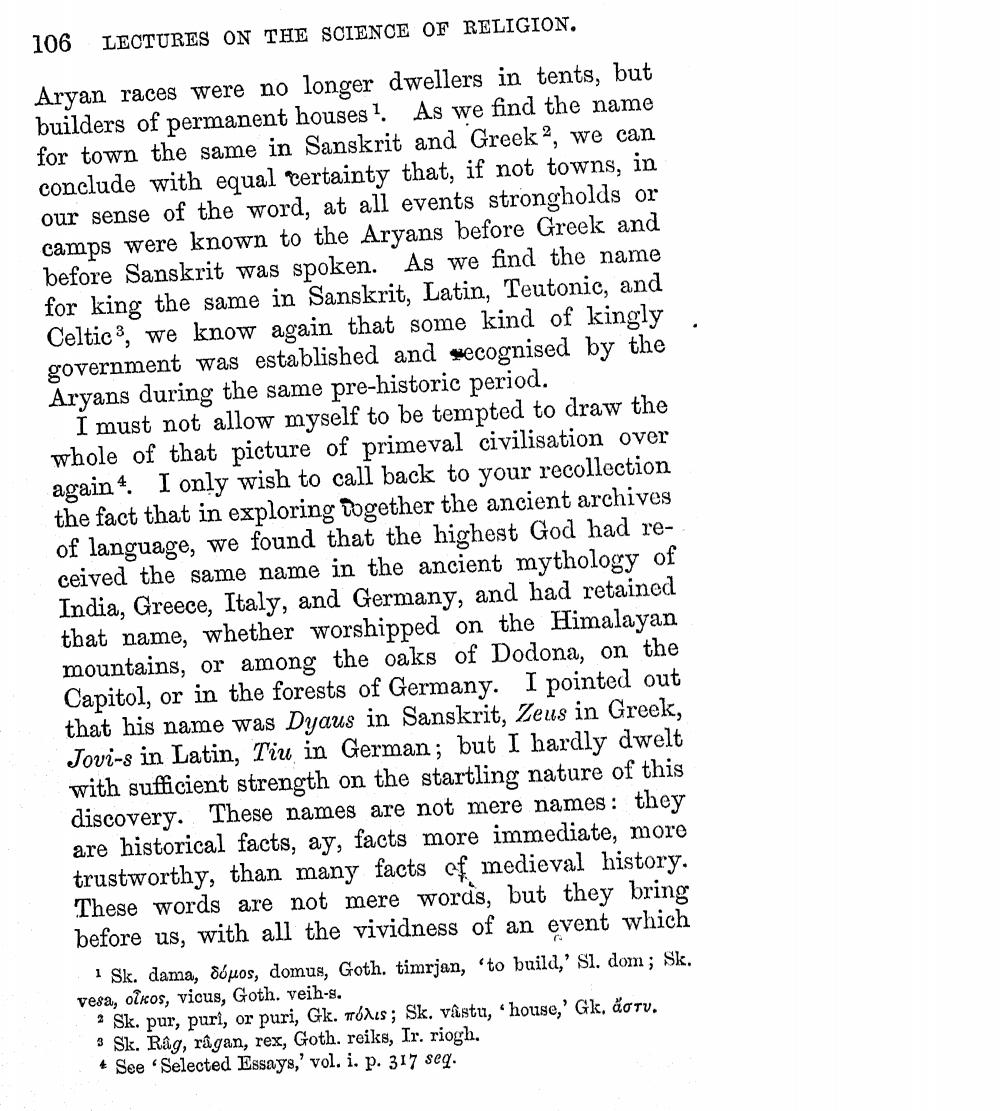________________
106 LECTURES ON THE SCIENCE OF RELIGION.
Aryan races were no longer dwellers in tents, but builders of permanent houses 1. As we find the name for town the same in Sanskrit and Greek 2, we can conclude with equal certainty that, if not towns, in our sense of the word, at all events strongholds or camps were known to the Aryans before Greek and before Sanskrit was spoken. As we find the name for king the same in Sanskrit, Latin, Teutonic, and Celtic, we know again that some kind of kingly government was established and recognised by the Aryans during the same pre-historic period.
I must not allow myself to be tempted to draw the whole of that picture of primeval civilisation over again. I only wish to call back to your recollection the fact that in exploring together the ancient archives of language, we found that the highest God had received the same name in the ancient mythology of India, Greece, Italy, and Germany, and had retained that name, whether worshipped on the Himalayan mountains, or among the oaks of Dodona, on the Capitol, or in the forests of Germany. I pointed out that his name was Dyaus in Sanskrit, Zeus in Greek, Jovi-s in Latin, Tiu in German; but I hardly dwelt with sufficient strength on the startling nature of this discovery. These names are not mere names: they are historical facts, ay, facts more immediate, more trustworthy, than many facts of medieval history. These words are not mere words, but they bring before us, with all the vividness of an event which
1 Sk. dama, dóuos, domus, Goth. timrjan, 'to build,' S1. dom; Sk. vesa, olkos, vicus, Goth. veih-s.
2 Sk. pur, puri, or puri, Gk. réλs; Sk. vastu, house,' Gk, doTv.
3 Sk. Rag, rågan, rex, Goth. reiks, Ir. riogh.
See 'Selected Essays,' vol. i. p. 317 seq.




